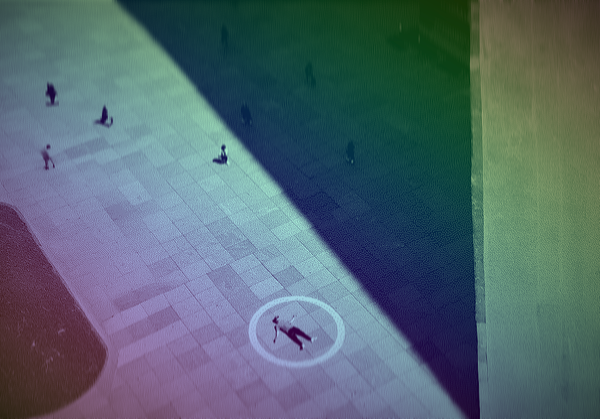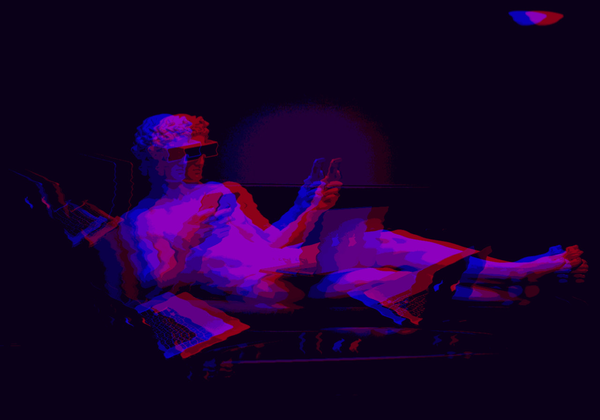Radical responsibility: a love letter
Fragments of care and responsible design

What is our legacy towards new designers? Do we keep on following Design Leaders™ telling us to return to the craft, embrace AI, or do we stubbornly stay the course for a humanistic (however improbable) design?
I want to give another point of view to the bleak love letter to design I wrote in the last post. Think of this as the upside down.
This is a love letter full of hope!
Dear designer, no matter if you are early career professional or a seasoned grumpy ol’ professional like me, read on…
Designers perform work that is fundamentally a mix of craft and care labor. Although, this reveals capitalism's ability to capture and commodify even the most genuine impulses toward care, if we push against this cynical reading we start seeing some interesting dynamics.
Design's care labor (relational and emotional work, anticipatory care, systemic thinking, user advocacy, empathetic problem-solving) exists in the spaces beyond measurement. These moments of 'unconditional hospitality' are tiny fractures in the extractive logic of business-as-usual
The designer's uncomfortable position (simultaneously privileged and precarious, a professional that is somehow valued yet invisible) might reveal something emergent about the possibility of radical responsibility under late capitalism. Here perhaps lies a contradiction worth inhabiting rather than resolving.
This relates to what Derrida refers to as the "gift": a giving that asks nothing in return, a giving that must go unnoticed lest it fall back into the logic of exchange. The moment the gift is acknowledged, it becomes a transaction. When hospitality becomes conditional, it transforms into a commodity.
The designer, at their best, occupies precisely this impossible position. They create interfaces, experiences, and systems for users they will never meet, while addressing needs they cannot fully anticipate. The successful design disappears, becoming intuitive, and taken for granted. Like the gift, its very success depends on its invisibility.
Care under capitalism
David Graeber's analysis in "Bullshit Jobs" revealed the inverse relationship between social utility and financial reward under late capitalism. The more genuinely useful work becomes, the less it is valued. Care workers (those who tend to the young, the old, and the sick) perform the labor that literally reproduces society, yet remain systematically underpaid and undervalued.
Care labor, with its emphasis on relationships, emotional intelligence, and long-term nurturing, represents everything that capital finds extremely hard to directly capture. It is feminized, racialized, and pushed to the margins precisely because it poses a threat to the logic of endless accumulation.
Enter the designer. Here we find care labor that has somehow managed to infiltrate the heart of the capitalist machine. User experience design, service design, human-centered design, accessibility, all these buzzwords represent the partial incorporation of caring practices into the profit-generating apparatus. The designer performs emotional labor, builds relationships with users, and thinks systemically about long-term impacts.
They do some form of care work. But they do it from a position of privilege that most care workers could never dream of. Therein lies both the impossibility and the opportunity.
Tech companies extract user data, attention, and behavioral patterns while externalizing the costs of mental health, and social cohesion onto the individual, and the society at large. The algorithm optimizes for engagement, not wellbeing. The platform maximizes data capture, not human thriving.
The designer sits in a contradictory position within this apparatus. They are simultaneously complicit in the extraction (creating more engaging dark patterns, more addictive interfaces) and potentially resistant to it (design ethics - which in turn we may ask 'yes but for who and at what cost').
This contradiction is not something that has to be resolved but perhaps to be productively inhabited. It is precisely in this tension that the possibility of radical responsibility emerges.
Toward radical responsibility
The concept of responsibility within Derrida's thought is paradoxical. True responsibility cannot be programmed or systematized because it involves responding to the singular, unrepeatable encounter with the other. The moment responsibility becomes routine, it ceases to be responsible. The moment it becomes policy, it becomes control.
The designer faces this paradox daily. How do you design responsibly for millions of users, each with their own needs, contexts, and vulnerabilities? How do you systematize care without destroying its essentiality?
The answer is not to untangle the paradox but to remain precisely faithful to its impossibility. This might take the form of designing systems that can surprise, interfaces that retain space for the unexpected encounter, or simply experiences that acknowledge their own limitations. Perhaps this tells us that the most radical thing a designer can do is not to perfect the user experience but to leave room for users to exceed it, or to use the system in ways never intended.
The best designs give without expectation of return, and the giving often goes unnoticed. An accessibility feature that makes a website usable for someone with a disability. A loading state that reduces anxiety. An error message that treats user mistakes with kindness rather than error-shaming.
Moments of care cannot be captured by metrics or KPIs. They exist in the spaces beyond measurement, in the qualitative dimensions that resist quantification. They represent a kind of surplus of care that exceeds the logic of exchange.
This surplus is where the political potential of design as care labor resides. Not in the grandiose claims of "changing the world through design", but in the accumulation of small acts of unconditional hospitality. Each moment of genuine care in an user interaction is a tiny fracture in the extractive logic of busines- as-usual and a reminder that other ways of being together are possible.
The designer's unconditional gift is not the solution they come up with but the spaces they create for others to feel cared for. It is not the experience they shape but the conditions they establish for a genuine encounter.
Radical responsibility in design means accepting that you cannot control the effects of your design (experience), toward the other (user) who will use what you have made in ways you cannot predict or anticipate.
This is the designer's burden and opportunity: to perform care labor from a position of privilege, to smuggle hospitality into the heart of the machine, and give something that must remain unrecognized as such.
It is impossible work. It is necessary work. It is work of meaning.



